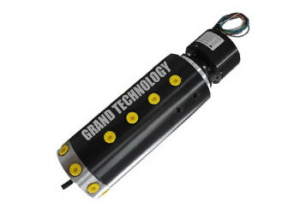Convert information into knowledge has a lot to do with understanding the different stages of data processes. Extracting profits and generating value is not a simple mining procedure, rather, it is also a specialized technique in which it is necessary to know how to select from a wide range of approaches, tools and methods.

Photo credits: istock kasto80
Raw data enters the system and, from that moment, only the organization depends on the use that is given to them. Even when all data processes They are different, there is a common scheme in all of them: after access, the deployment of computer systems, software, various applications … a journey that starts from the data and ends in the production of knowledge and context. The step prior to generating value.
The stages of data processes
Know the stages of data processes Optimizing them is essential, understand them better and be able to extract the maximum benefit from each bit of information that is entered into the system. A) Yes, we can talk about six phases common to most of them:
- Collect: Es la primera etapa del ciclo y la más relevante dado que la calidad de los datos recopilados afectará en gran measureThe "measure" it is a fundamental concept in various disciplines, which refers to the process of quantifying characteristics or magnitudes of objects, phenomena or situations. In mathematics, Used to determine lengths, Areas and volumes, while in social sciences it can refer to the evaluation of qualitative and quantitative variables. Measurement accuracy is crucial to obtain reliable and valid results in any research or practical application.... a los productos que se obtengan de ella. This stage provides both the baseline from which to organize the metric system, as the necessary information on the objectives of the data processes, which are the ones that help to keep improving.
- Preparation: at this stage the data is manipulated in order to obtain the appropriate format for further analysis and processing. Raw data cannot be processed and Its accuracy must be checked to avoid errors in later phases..
- Data entry: Either manually, digital or automated, this type of data processes They seek to turn data into actionable information. This time-consuming stage needs speed and precision, although is characterized by its intensity in resources.
- Prosecution: In this point, data is subjected to various methods, each with their own instructions; through those who are tested examine, categorize and organize for useful information. This is one of the objectives of the data processes So what, thanks to technological advances, it is increasingly feasible to achieve this in shorter periods of time.
- Interpretation and analysis: the processed information is transmitted to the business user, who will take care of enter it through reports, visualizations, video or audio montages; obtain the knowledge that will guide future decisions of the company.
From this moment, The information used is stored and the knowledge extracted is shared individually or made available to the rest of the users of the organization on a platform. The important thing is that the speed, update, security and accessibility are never compromised, Given the, if any of these setbacks occur, the effort invested in data processing.
(function(d, s, id) {
var js, fjs = d.getElementsByTagName(s)[0];
if (d.getElementById(id)) return;
js = d.createElement(s); js.id = id;
js.src = “//connect.facebook.net/es_ES/all.js#xfbml=1&status=0”;
fjs.parentNode.insertBefore(js, fjs);
}(document, ‘script’, 'facebook-jssdk'));






